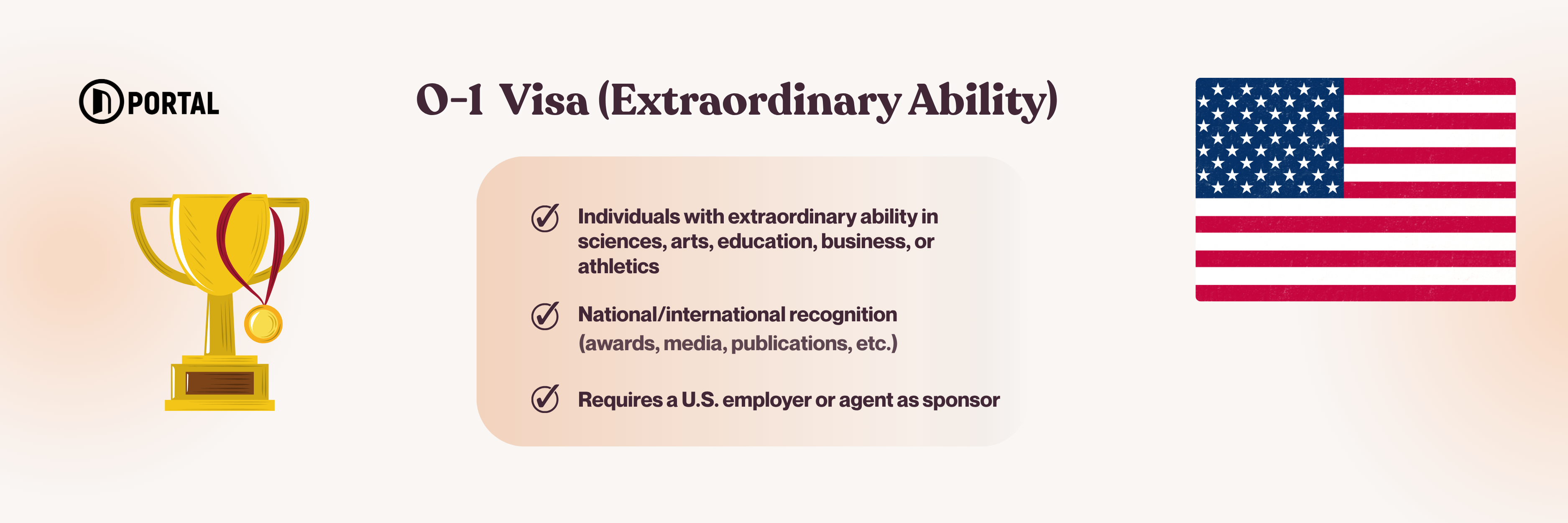
The O-1 Visa is a temporary work visa for people who have shown extraordinary ability in their field. It is for individuals who are at the very top of their profession — whether in the sciences, education, business, athletics, arts, film, or television.
The O-1 is often called the “talent visa” because it is used by well-known scientists, researchers, entrepreneurs, athletes, musicians, and actors, but also by people who are recognized as outstanding in their area even if they’re not “famous” worldwide.
There are two main types:
You must have extraordinary ability in your field. This can be shown through major awards (like a Nobel Prize or an Olympic medal), or through consistent recognition such as published work, high salary, memberships, media coverage, or original contributions.
You must have a U.S. employer, agent, or manager to file the petition for you. You cannot apply for yourself.
You must be coming to the U.S. to work in the area of your extraordinary ability (for example, an Olympic athlete can’t come to work as a teacher under this visa).
You need to show proof of achievements, such as:
Awards or prizes.
Critical roles in distinguished organizations.
Published material about you.
Membership in associations that require outstanding achievements.
High salary compared to others in your field.
Work legally in the U.S. in your field of expertise.
Stay up to 3 years initially, with extensions available in 1-year increments.
Bring your family – your spouse and children under 21 can come with you on O-3 visas (though they cannot work).
Work on multiple projects if filed through an agent or manager, which is common in the entertainment industry.
Faster approval process than some other visas, especially for artists and performers with urgent projects.
Dr. Ahmed, a leading cancer researcher from Egypt, is invited to join a U.S. university for a groundbreaking project. Because of his many published papers and international awards, he qualifies for the O-1A visa.
Lucia, a well-known violinist from Argentina, is asked to perform with several orchestras across the U.S. Her proven international recognition helps her get the O-1B visa.
Kenji, a Japanese video game designer whose work has won global awards, gets an O-1 visa to join a U.S. studio on a new project.
The initial stay is up to 3 years, and it can be extended in 1-year periods if the work continues.
Yes, your spouse and unmarried children under 21 can join you on O-3 visas. They cannot work but can study.
Yes, but each new employer must file a new petition for you before you can start working for them.
Not necessarily. You need to show you are among the small percentage at the top of your field — this could be proven by awards, press, or significant achievements, even if you’re not a household name.
Not directly. But many O-1 holders later apply for permanent residency through other categories, such as EB-1 (for extraordinary ability).